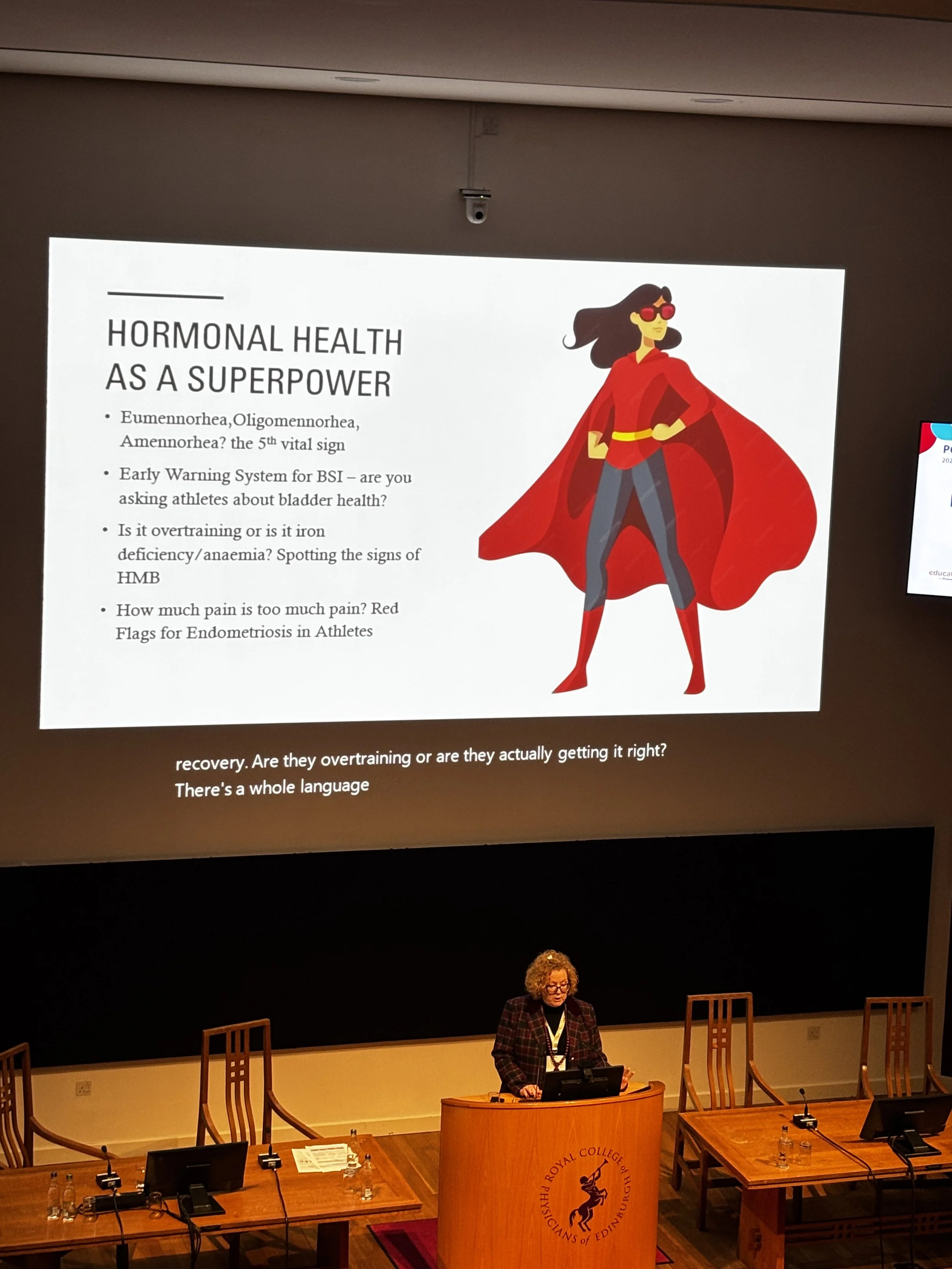A few weeks ago, our Physiotherapists Laura, Fiona, Ailsa, and Tamara headed to Edinburgh for the Pelvic, Obstetric, and Gynaecological Physiotherapy (POGP) Annual Conference at The Royal College of Physicians. .
Physiotherapists Laura and Tamara with Heather Scott at The POGP conference in Edinburgh
It was an inspiring weekend, 300 Pelvic Health Physiotherapists brought together for a conference packed with brilliant talks and discussions from experts across a range of disciplines, covering everything from pelvic health and sport to pregnancy, menopause, and menstrual health.
Our team returned feeling motivated and energised, equipped with the latest research and insights to continue delivering the most effective, evidence-based, and holistic care for our patients.
Tamara’s Top Takeaways: Pelvic Floor & Exercise Facts
Our MSK and Pelvic Health Physiotherapist, Tamara, gathered some of her favourite research highlights from the weekend. Here are a few “Did you know?” moments that might surprise you:
Physiotherapist Ailsa Cairns enjoying conference hospitality
Did you know?
Urinary incontinence is three times more common in elite athletes than in non-athletes.
And interestingly, athletes who experience leakage often have stronger pelvic floor muscles than those who don’t.
What does this mean?
Pelvic floor symptoms aren’t always about weakness. An assessment with a pelvic health physiotherapist can help identify what’s really going on and guide you toward the right solution.
What are the implications for sport?
We should ensure that we are integrating pelvic health questions into sports screening.
Did you know?
Heavy lifting isn’t linked to prolapse and you don’t have to stop exercising if you have pelvic floor symptoms.
Research shows no association between lifting and prolapse, nor does it indicate you should stop sport with pelvic floor dysfunction.
What does this mean?
You can keep doing the activities you love! With some tailored adjustments; such as modifying load, intensity, or training volume. With a focused pelvic floor exercise plan, symptoms can often improve significantly.
Around 40% of women with pelvic floor dysfunction stop participating in sport and most never talk about their symptoms.
What does this mean?
There’s still a lot of work to do in raising awareness about what’s normal, what’s not, and what help is available. You don’t need to struggle in silence support and effective treatment are out there.
Individualised pelvic floor muscle training prescribed by a physiotherapist has the highest level of evidence for effectiveness.
That’s Level 1, Grade A evidence meaning it’s backed by the strongest research available.
What does this mean?
Pelvic floor physiotherapy works. Whether you’re dealing with leakage, prolapse symptoms, or just want to understand your body better, personalised physiotherapy can make a huge difference.
Hormonal health as a superpower, presented by Michelle Lyons
At ReformPhysio & Pilates, our team is passionate about empowering people through education, movement, and evidence-based care.
If you’re curious about pelvic floor physiotherapy, or you’ve been putting off asking those “awkward” questions — don’t hesitate to reach out.
Book an appointment today and take the first step toward understanding your body better.



